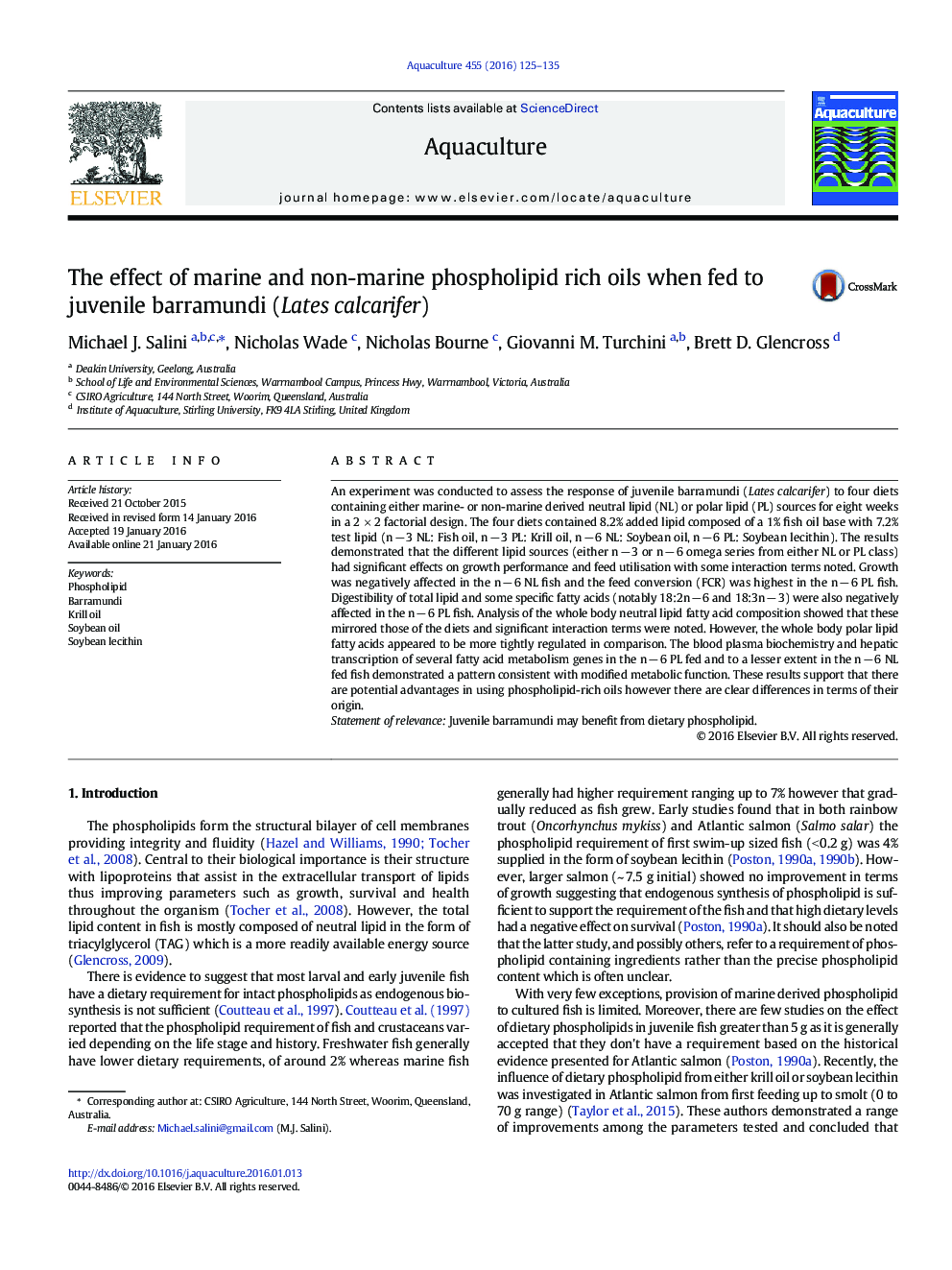| کد مقاله | کد نشریه | سال انتشار | مقاله انگلیسی | نسخه تمام متن |
|---|---|---|---|---|
| 2421527 | 1552832 | 2016 | 11 صفحه PDF | دانلود رایگان |

• Dietary phospholipid improved the performance of juvenile barramundi.
• Krill oil fed fish were equivalent to fish oil fed fish.
• Modified metabolic function was observed in fish fed soybean oil and lecithin.
An experiment was conducted to assess the response of juvenile barramundi (Lates calcarifer) to four diets containing either marine- or non-marine derived neutral lipid (NL) or polar lipid (PL) sources for eight weeks in a 2 × 2 factorial design. The four diets contained 8.2% added lipid composed of a 1% fish oil base with 7.2% test lipid (n − 3 NL: Fish oil, n − 3 PL: Krill oil, n − 6 NL: Soybean oil, n − 6 PL: Soybean lecithin). The results demonstrated that the different lipid sources (either n − 3 or n − 6 omega series from either NL or PL class) had significant effects on growth performance and feed utilisation with some interaction terms noted. Growth was negatively affected in the n − 6 NL fish and the feed conversion (FCR) was highest in the n − 6 PL fish. Digestibility of total lipid and some specific fatty acids (notably 18:2n − 6 and 18:3n − 3) were also negatively affected in the n − 6 PL fish. Analysis of the whole body neutral lipid fatty acid composition showed that these mirrored those of the diets and significant interaction terms were noted. However, the whole body polar lipid fatty acids appeared to be more tightly regulated in comparison. The blood plasma biochemistry and hepatic transcription of several fatty acid metabolism genes in the n − 6 PL fed and to a lesser extent in the n − 6 NL fed fish demonstrated a pattern consistent with modified metabolic function. These results support that there are potential advantages in using phospholipid-rich oils however there are clear differences in terms of their origin.Statement of relevanceJuvenile barramundi may benefit from dietary phospholipid.
Journal: Aquaculture - Volume 455, 20 March 2016, Pages 125–135